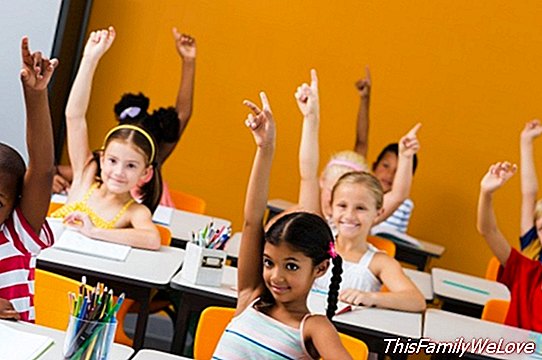Ideas to understand better and develop in class

The teaching must be personalized and give the possibility of choice for each student to discover their strongest intelligences, and, therefore, choose the path that is most appropriate for learning. The role of parents is also vital to understand the most developed intelligences in their children. This way they will be able to communicate them at school and help teachers to better understand their students.
However, they are the ones who know their skills better than anyone, although sometimes they tend to identify with exclusively academic ones (linguistic, logical-mathematical, musical or kinesthetic skills). It is in a good and prepared tutoring where teachers can collect data that complement the profile of the student and help parents to enhance the learning of their child based on their skills or talents.
Surely, it will be in family, in trust, where, for example, children will clearly manifest emotional intelligence (intra and interpersonal). The importance of knowing oneself, so difficult at school age, controlling their emotions, overcoming the remnants of egocentricity, arguing their convictions at home without falling into disrespect towards other members. The complicated task of directing and balancing emotions to guide one's behavior begins and reorients in the family.
Ideas to understand better: how to discover the talent of the students
It is necessary to have well identified the skills of each of the intelligences, both to understand them and be able to take advantage of them, as well as to design activities that make their development possible.
It is relatively easy to recognize in students, for example, their ability or gift of the word, by observing them work in a team, arguing with conviction, in a debate ... Or simply by representing a theatrical work we know without a doubt who has wood from actor. Likewise, the rhythm is discovered in oral reading, in sport or in activities of visual-motor coordination, in songs or declamations of poems. The linguistic, musical and kinesthetic intelligences offer many clues to the educator.
The order in the presentation of notebooks, and the hierarchy organized in schemes, conceptual maps, tables and graphs indicate an adequate spatial intelligence, even logical-mathematical. Students who excel in the use of mental images, in creating designs, paintings and drawings, or show ability to construct diagrams and build or invent things clearly reveal their perception of the world in images.
The rigor in the work, the ability to find logical solutions to problems, or logic games or activities also tend to indicate a mathematical talent, and in most cases, they agree with a good reflective thought, and adequate concentration, the result of a level of apt development in intrapersonal intelligence. To develop mathematical intelligence, for example, activities that consist of posing problems with an open end are usually used for students to solve them.
Social relations, both in classroom activities and in recesses, there are clear indexes of interpersonal intelligence, charismatic people, students who, being or not leaders in class, mean a lot to the rest of the group.
Observing students, with a great capacity for reflection, establishment of connections, integration and communication of perceptions of the natural world, which also manifest desires to know how things work, clearly point to a naturalistic skill or intelligence, and stand out in research activities, no matter how small .
There are many benefits of this innovative teaching strategy that consists of attending to the school, understanding and developing: it manages to respect the multiple differences between people and, as a consequence, among its different procedures when it comes to tracing the path of learning. In addition, at the same time it makes our work much more rewarding and stimulating, since it is about - and especially in the first ages - the exciting challenge to discover the strengths to enhance them.
Although cataloged as a pioneer, in the end, this theory is respectful of what we all accept: that we are different, we think differently and we learn unequally, not better or worse, just different.
And our duty is to identify and develop what we do best: our area of excellence, since only by relying on our strengths will we find the motivation and self-esteem necessary to face the weaknesses.
Sara Lladó. Teacher and Primary Coordinator at Colegio Orvalle




